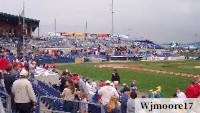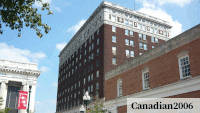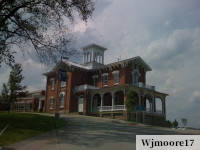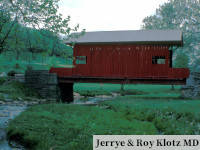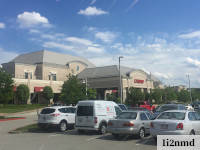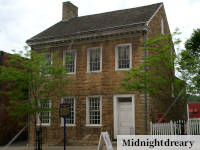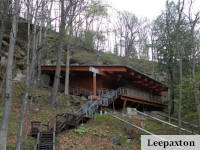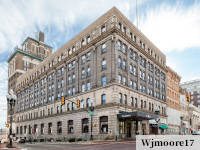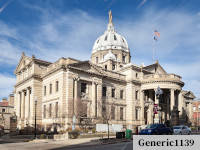Washington’s Most Imposing Reception
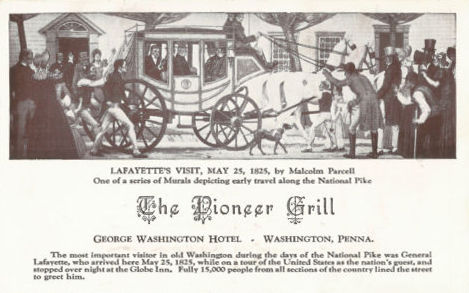
The Globe Inn was an unimposing stop along the National Road in Washington, PA, best known for the grand visit of the Marquis de Lafayette in 1825. At the time, he was quite the celebrity throughout the U.S.
The Marquis de Lafayette, better known in America as just Lafayette, was a French aristocrat and one of the most successful military leaders of the revolt of the thirteen colonies against British rule. General George Washington treated Lafayette like his adopted son. Lafayette gave money to support the colonies against Great Britain and was injured in the fighting. He became a war hero and was famous in the U.S. for generations.
By 1824, when Lafayette undertook a lengthy tour of the U.S. to mark the 50th anniversary of American independence, he was the last surviving French general of the American Revolution. Lafayette was in his late sixties – it was his goodbye tour.
A committee of prominent Washington people met Lafayette in Wheeling, WV. He traveled towards Washington in a luxurious, four-wheeled carriage such as was popular among people of means in the 19th century. His cavalcade refreshed themselves and watered the horses along the way at taverns at West Alexander and Claysville, which were pike towns that provided food, drink and lodgings for people traveling the National Road.
A cavalry escort joined the procession at they approached Washington.
A signal gun was fired as they drew closer.
A host of adoring people welcomed Lafayette about a mile west of the city. Surviving Revolutionary War officers and soldiers lined up to greet Lafayette. Congressmen, state legislators and other elected officials were on hand with judges and attorneys, religious leaders and Masons, physicians and everyday people.
Trumpets sounded and were joined by other instruments.
For more than an hour, Lafayette moved through the crowds, emotionally acknowledging their acclaim. Minute guns were fired by the artillery to salute him. A chorus of thirty women dressed in white sang to him in front of the Washington County Courthouse.
Estimates at the time indicated 20,000 people greeted Lafayette here. A speaking platform was set up outside the Globe Inn. A long speech welcomed him in the custom of the day. After a brief rest in his room at the Globe Inn, Lafayette returned to review the troops.
“That was the most imposing reception that ever welcomed any famous person to Washington,” the Washington Observer – predecessor to today’s Observer-Reporter – wrote in a 1955 retrospective of Lafayette’s visit.
From Washington, Lafayette traveled east to Scenery Hill – then called Hillsborough – for breakfast at the Century Inn, and onto Brownsville and Uniontown in Fayette County, which was named after Lafayette. Braddock and Pittsburgh were next. His extensive tour continued north from there. When he returned to France, he took with him soil from his beloved United States to have placed on his grave.
Other notable people stayed at Washington’s Globe Inn over the years – including Presidents Monroe, Jackson, Harrison, Polk and Taylor – but none had the same impact on the people of Washington as Lafayette’s visit.
The Globe Inn opened for business in the late 1700s to provide rooms and meals to people who traveled along what became known as the National Road. At the time, Washington was a frontier town and the road was used by Americans, including new immigrants, as they moved westward to settle what is now referred to as the Midwest.
By the time the inn was torn down in the late 1800s, Washington was in the middle of an economic boomed propelled by crude pumped from the Washington Oil Field, and the importance of the National Road had given way to travel by railroad.
In the mid 1900s, an historical marker was erected on South Main Street recognizing the historic importance of the Globe Inn. It reads:
Globe Inn
Stood on this site.
It was opened in 1798 by
David Morris. Among the
noted guests during the
National Road era were
five presidents of the U.S.
Lafayette was
entertained here on
May 25, 1825.
This article was published in
